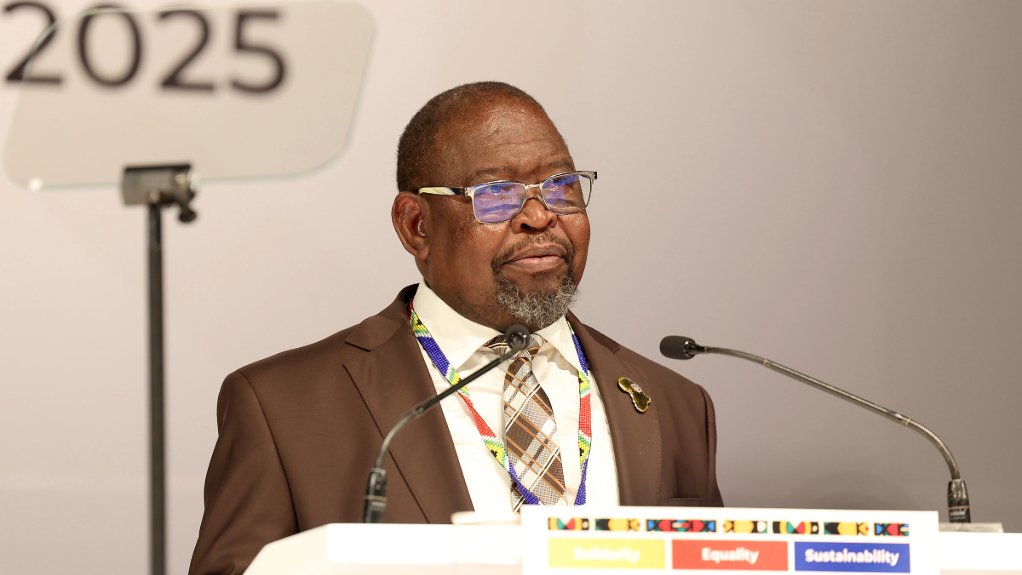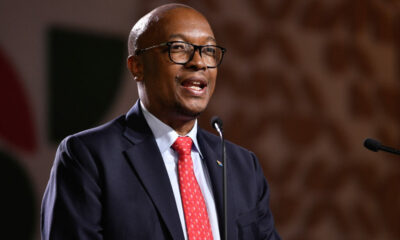News
Government Eyes Pension Funds to Power Infrastructure Growth, But Experts Urge Caution

South Africa’s Finance Minister Enoch Godongwana has confirmed that the government plans to use long-term domestic savings, including pension funds, to drive its industrial and infrastructure agenda. The move, revealed during the May 2025 National Budget address, has sparked debate, with economists and financial advisors urging both caution and perspective.
Speaking at what is expected to be his final budget presentation, Godongwana said infrastructure investment will be a central pillar of South Africa’s economic revival. He outlined plans to launch the country’s first infrastructure bond by 2026 and to mobilize capital from a range of sources—pension funds, commercial banks, and international institutions among them.
“Infrastructure investment expands economic capacity and generates jobs across many skill levels,” said Godongwana. “We’re shifting spending from consumption to capital investment.”
Trillions Committed to Key Projects
Over the next three years, more than R1 trillion is earmarked for infrastructure, including:
-
R402 billion for transport and logistics (R93.1 billion to SANRAL)
-
R219.2 billion for energy upgrades
-
R156.3 billion for water and sanitation projects
-
R66.3 billion for PRASA, focusing on rail upgrades for low-income commuters
These investments are designed to ease supply bottlenecks, improve service delivery, and support economic growth.
Prescribed Assets: Old Idea, New Concerns
While the government has not officially reintroduced “prescribed assets”—a policy that forces retirement funds to invest in state-approved instruments—the idea has returned to public discourse. It was featured in the ANC’s 2024 election manifesto and echoes a system last used in the apartheid era, which was eventually scrapped in 1989.
The return of this concept has worried many in the financial sector. Critics like Efficient Group’s Dawie Roodt and Alexander Forbes CEO Dawie de Villiers argue that such measures would reduce trustee autonomy and could damage investor returns.
Regulation 28: A Softer Approach?
Godongwana has suggested a less rigid alternative: using Regulation 28 of the Pension Funds Act to broaden investment options rather than impose mandates. This regulation allows for controlled diversification of pension investments, including into unlisted or green infrastructure projects.
“We’re talking about enabling, not enforcing,” said Cameron McCallum, Managing Director at Netto Invest. “The government seems to be focused on creating investment pathways—not pushing investors into a corner.”
McCallum adds that while vigilance is necessary, there’s no need to panic. Pension funds are highly regulated, and any drastic legislative change would likely face strong opposition and legal challenges from the industry.
What This Means for Savers
Although nothing is set in stone, South Africans are watching closely. The government’s infrastructure ambitions are bold, and its funding strategy will need to balance national growth with safeguarding the savings of millions.
Financial experts agree on one thing: any move perceived to threaten investor rights or reduce trust in pension systems could backfire, potentially shrinking the very pool of capital the government hopes to tap into.
“If members lose confidence, they might reduce contributions or even exit the system,” warned McCallum. “That’s a risk no one can afford.”
{Source: BusinessTech}
Follow Joburg ETC on Facebook, Twitter , TikTok and Instagram
For more News in Johannesburg, visit joburgetc.com



























